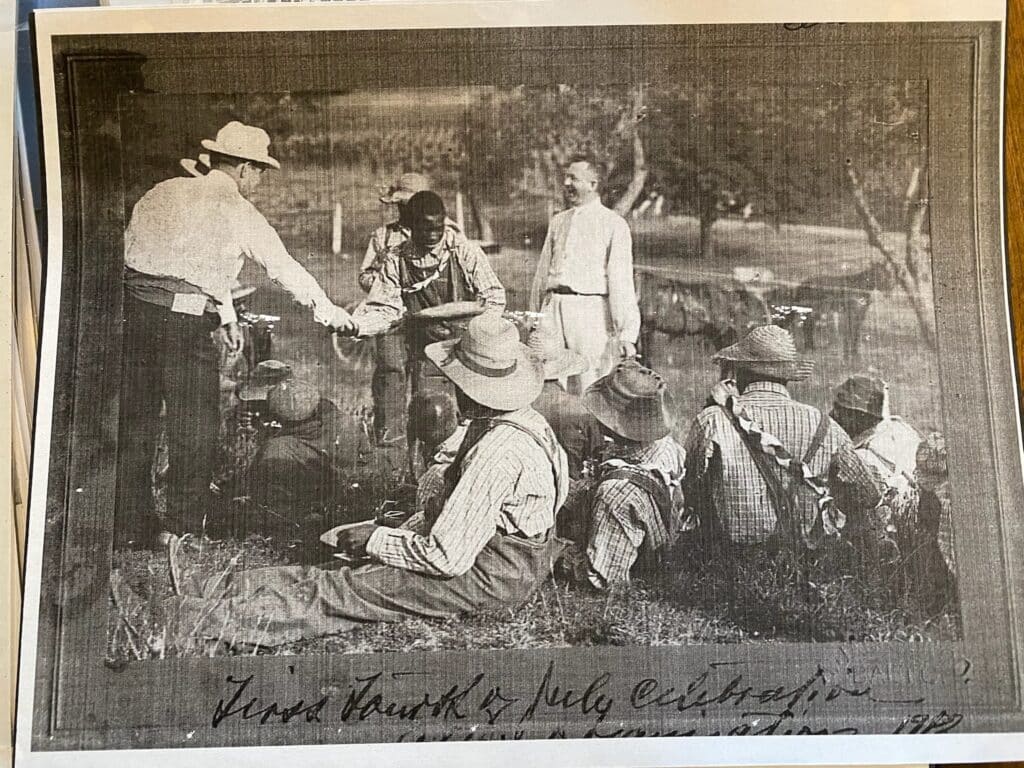
Antonia Hylton’s new book Madness: Race and Insanity at a Jim Crow Asylum explores the roots of Crownsville Hospital through eye-opening historical context and emotional stories of patients and families.The 544-acre property, formerly known as Maryland’s Hospital for the Negro Insane, still stands in Anne Arundel County, and its 93-year history has had a resounding impact in this area. As I turned the first few pages of the book, I was shocked to learn that these buildings I’d driven by so many times were built on the backs of the facility’s first patients in 1911.
From the start, it was clear that the asylum was an intersection for racism, discrimination, trauma and, honestly, ignorance regarding mental health diagnoses and best practices. However, by the end of the book and the institution’s 2004 closure, Crownsville Hospital had also become a symbol of hope. Now, it represents an opportunity for healing and an unprecedented collaboration for an entire community regardless of race.
I had the honor of speaking with Hylton, who is also a two-time Emmy award-winning NBC News Correspondent, via video chat about her best-selling book. “The heroes, the people who came in to save these patients … the heart is really a Black community that comes in to save their own loved ones and neighbors, there are also amazing people of all backgrounds, including Jewish doctors, who escaped the Holocaust…and believe in reform and see the humanity in the patients,” Hylton notes. “And so…what we’re seeing right now is a community coming together in Maryland and debating, okay, well, how can this represent true healing for all of us?”
Community suggestions include transforming the property into community gardens, a children’s horse therapy farm, and veteran housing.



Images courtesy of Maryland Archives.
Madness not only provokes discussion, but important conversations also take place right within its pages. Hylton’s conversations with Maryland Governor Wes Moore and Anne Arundel County Executive Steuart Pittman stood out to me. The officials agree it’s time to confront the past; as Pittman puts in, “even if it’s not clear that it makes financial sense, political sense, or any other kind of sense.”
“[Their support] represents a unique moment, a kind of first-time-in-history in Maryland,” reflected Hylton, who spent a little over a decade crafting this book. “Governor Moore, being the first Black governor in Maryland, [and] Steuart Pittman, being someone who has been very interested in the history of [Crownsville Hospital], [are] ready to collaborate in a way that county executives and governors haven’t always been when it comes to this topic. And so, I think it represents turning a new leaf. I think it represents collaboration.”
The anecdotes and historical facts in Madness reveal pivotal moments that have molded Anne Arundel County into what we see today. Furthermore, the stories of those like Sonia King, a former patient, and Paul Lurz, a former employee who saved and kept critical patient records, emphasize how kindness and empathy make all the difference.
“I think the [book’s] major message for me is…what seems to make the difference for [mental health] patients is whether or not they have a community to come home to,” Hylton told me. “A community with clinics, social supports and doctors who love them and look like them and believe in them, whether they have relatives who will support them, wrap their arms around them, have their back… those things are often the difference between life or death, between success and failure, between rehabilitation and recidivism.”
Thanks to Hylton and community organizers like Historian Janice Hayes-Williams, healing has begun. However, Hylton advocates for local citizens to show their continued support by writing to officials, requesting funding, and attending memorial events.
Hylton invites readers to attend Say My Name, a ceremonial event taking place on the Crownsville Hospital grounds, on April 27 at 10 am. Madness: Race and Insanity at a Jim Crow Asylum is available for purchase at Mahogany Books and Park Books.





 One-of-a-Kind Haircuts: An Interview with The Lost Rōnin
One-of-a-Kind Haircuts: An Interview with The Lost Rōnin